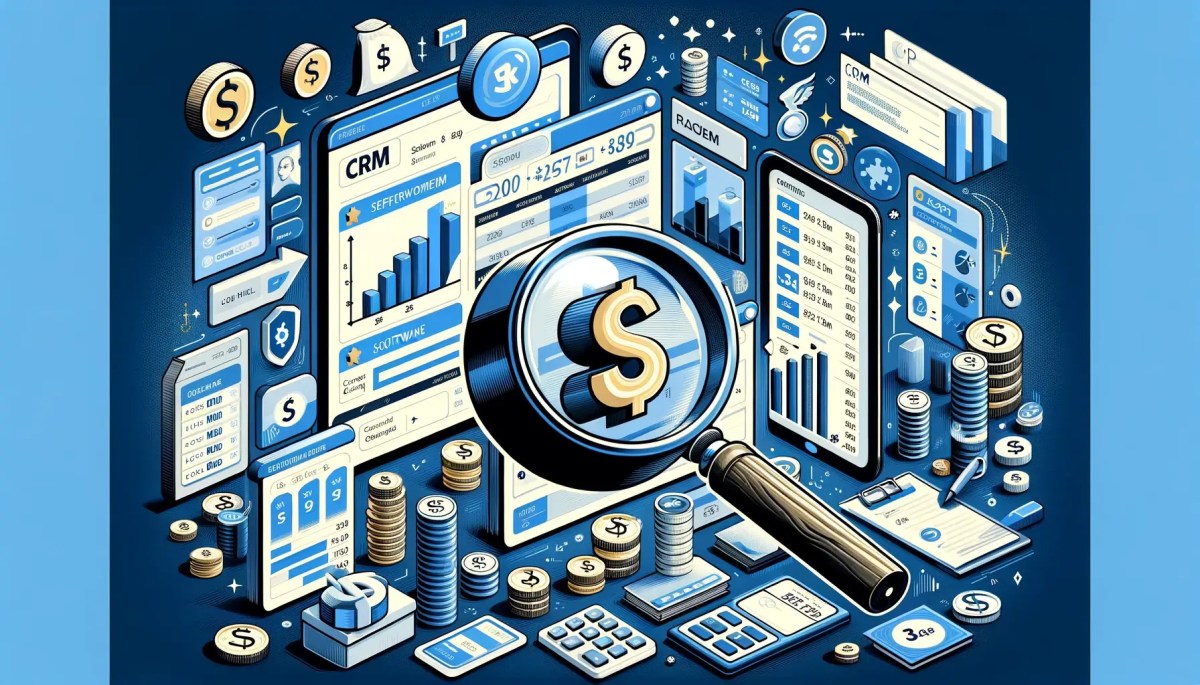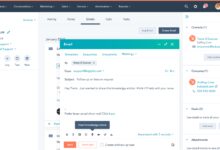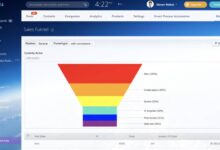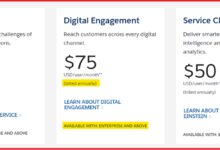CRM Software Cost: 7 Shocking Truths You Must Know in 2024
Thinking about investing in CRM software? You’re not alone. But before you commit, understanding the real CRM software cost is crucial to avoid budget blowouts and buyer’s remorse.
[ez-toc]
Understanding CRM Software Cost: What You’re Really Paying For

When businesses explore CRM software, the first question is often, ‘How much will it cost?’ But the answer isn’t as simple as a single price tag. The CRM software cost varies widely based on features, deployment models, vendor reputation, and scalability. It’s not just about the monthly subscription—it’s about the total value delivered.
What Is CRM Software?
Customer Relationship Management (CRM) software is a tool that helps businesses manage interactions with current and potential customers. It centralizes customer data, tracks communication, automates sales processes, and improves customer service. From small startups to Fortune 500 companies, CRM systems are essential for growth and retention.
According to Gartner, the global CRM market was valued at over $50 billion in 2023 and continues to grow at a compound annual growth rate (CAGR) of 12%. This surge reflects the increasing reliance on data-driven customer engagement.
Why CRM Software Cost Varies So Much
The CRM software cost isn’t standardized because CRM platforms serve different industries, business sizes, and operational needs. A basic CRM for a five-person sales team will naturally cost less than an enterprise-level solution with AI-driven analytics and global integration.
Factors like deployment type (cloud vs. on-premise), number of users, customization level, and integration requirements all influence pricing. For example, Salesforce offers tiered plans from $25 to $300+ per user per month, while HubSpot provides a free plan with paid upgrades starting at $20/month.
“The true cost of CRM isn’t just in the license—it’s in implementation, training, and long-term scalability.” — CRM Industry Analyst, Forrester Research
CRM Software Cost Breakdown: Hidden Fees You Can’t Ignore
Many businesses fall into the trap of focusing only on the advertised monthly fee. But the real CRM software cost includes several hidden or often overlooked expenses. Understanding these can prevent budget overruns and ensure a smoother rollout.
Licensing and Subscription Fees
This is the most visible part of the CRM software cost. Most vendors offer subscription-based pricing, typically billed monthly or annually per user. Entry-level plans from platforms like Zoho CRM or Freshsales start as low as $12/user/month, while advanced suites like Microsoft Dynamics 365 can exceed $200/user/month.
Some vendors offer volume discounts for annual commitments or large user counts. However, beware of automatic renewals and price hikes upon renewal—always read the fine print.
Implementation and Setup Costs
Even cloud-based CRMs require setup. This includes data migration, user onboarding, workflow configuration, and integration with existing tools like email, calendars, or ERP systems. While some vendors include basic setup, complex deployments may require third-party consultants.
For example, implementing Salesforce for a mid-sized company can cost between $10,000 and $50,000, depending on complexity. Smaller businesses using self-service platforms like HubSpot may spend as little as $1,000–$5,000.
Training and Adoption Expenses
A CRM is only as good as the team using it. Poor adoption rates are one of the top reasons CRM projects fail. Training costs—whether through vendor-provided sessions, online courses, or internal workshops—should be factored into the CRM software cost.
According to Nucleus Research, companies that invest in CRM training see a 152% higher return on investment (ROI) than those that don’t. Budgeting for ongoing training ensures long-term success.
Cloud vs. On-Premise CRM: Which Is More Cost-Effective?
One of the biggest decisions affecting CRM software cost is deployment: cloud-based (SaaS) or on-premise. Each has distinct financial implications over time.
Cloud-Based CRM: Lower Upfront, Higher Long-Term?
Cloud CRM solutions like Salesforce, HubSpot, and Zoho are subscription-based, requiring minimal upfront investment. You pay monthly, and the vendor handles maintenance, updates, and security.
While this model reduces initial capital expenditure, long-term costs can accumulate. A company with 50 users on a $50/month plan spends $30,000 annually—$150,000 over five years. But the trade-off is scalability and reduced IT burden.
For more on cloud CRM benefits, check out Salesforce’s official guide.
On-Premise CRM: High Initial, Lower Recurring?
On-premise CRM systems, like Microsoft Dynamics 365 (on-premise edition), require significant upfront investment. You pay for licenses, servers, IT infrastructure, and installation. A mid-sized deployment can cost $50,000–$200,000 initially.
However, once set up, recurring costs are lower—mainly maintenance and support. This model suits organizations with strict data control requirements or existing IT infrastructure.
“On-premise CRM gives control but demands expertise. Cloud CRM offers agility but locks you into a vendor’s ecosystem.” — TechCrunch Analysis, 2023
Top CRM Vendors and Their Real-World Pricing
To understand CRM software cost, let’s examine real pricing from leading vendors. This helps you compare apples to apples and identify the best fit for your budget.
Salesforce: The Premium Leader
Salesforce dominates the CRM market with a 19.8% share (Statista, 2023). Its pricing reflects its position:
- Salesforce Essentials: $25/user/month
- Sales Cloud Professional: $75/user/month
- Sales Cloud Enterprise: $150/user/month
- Unlimited Edition: $300/user/month
Additional costs include Einstein AI ($50+/user/month), Service Cloud add-ons, and implementation. Total CRM software cost for a 20-person team on Enterprise can exceed $50,000/year.
HubSpot: The Affordable All-in-One
HubSpot is popular for startups and SMBs. It offers a free CRM with paid hubs for sales, marketing, and service.
- Free CRM: $0
- Sales Hub Starter: $20/month (up to 5 users)
- Sales Hub Professional: $1,440/year (billed annually)
- Sales Hub Enterprise: $3,240/year
HubSpot’s strength is integration, but costs rise quickly with add-ons. A full suite for 10 users can cost $6,000+/year.
Microsoft Dynamics 365: The Enterprise Powerhouse
Dynamics 365 blends CRM and ERP capabilities. Pricing is complex:
- Sales Professional: $65/user/month
- Customer Service: $95/user/month
- Marketing: $2,000/month (minimum 5 users)
- Enterprise plans: Custom pricing
It’s ideal for organizations already using Microsoft 365, but integration complexity can increase CRM software cost.
Customization and Integration: How They Skyrocket CRM Software Cost
Out-of-the-box CRM features rarely fit every business perfectly. Customization and integration are often necessary—but they come at a price.
Custom Fields, Workflows, and Automation
Businesses often need custom fields, approval workflows, or automated triggers. While platforms like Zoho CRM allow some customization in lower tiers, advanced automation (e.g., AI-driven lead scoring) requires higher-tier plans or developer work.
Custom development can cost $50–$150/hour. A single complex workflow might take 20+ hours, adding $1,000–$3,000 to the CRM software cost.
Third-Party Integrations
CRMs must connect with tools like email (Gmail, Outlook), marketing platforms (Mailchimp), payment gateways (Stripe), and e-commerce (Shopify). While many integrations are available via app marketplaces, some require API development or middleware like Zapier.
Zapier charges $19–$99/month for CRM automation, and custom API work can cost thousands. Always assess integration needs before choosing a CRM.
Free CRM Options: Are They Worth the Risk?
Several vendors offer free CRM software, but are they truly free? Let’s examine the trade-offs.
Top Free CRM Platforms
Free CRMs can be a great starting point for solopreneurs or very small teams. Popular options include:
- HubSpot CRM: Free forever, with basic contact, deal, and task management.
- Zoho CRM: Free for up to 3 users.
- Bitrix24: Free for unlimited users (limited features).
These tools are powerful for basic use but lack advanced reporting, automation, and support.
The Hidden Costs of Free CRM
Free CRMs often come with limitations:
- Restricted user count
- Limited storage (e.g., 1GB)
- No phone support
- Branding (e.g., HubSpot ads in free version)
- Upgrade pressure: Vendors aim to upsell you
While the CRM software cost is $0, the opportunity cost—lost productivity, scalability issues—can be high as your business grows.
Calculating Total Cost of Ownership (TCO) for CRM
To truly understand CRM software cost, calculate the Total Cost of Ownership (TCO) over 3–5 years. This includes direct and indirect expenses.
Direct Costs
These are easy to quantify:
- Subscription fees
- Implementation and setup
- Customization and integration
- Training and support
- Hardware (for on-premise)
Example: A 10-user Salesforce Professional plan at $75/user/month = $9,000/year. Add $10,000 implementation and $2,000 training = $21,000 first-year cost.
Indirect Costs
These are harder to measure but equally important:
- Employee time spent on data entry
- Downtime during migration
- Lost sales due to poor adoption
- Opportunity cost of not using advanced features
A study by Panorama Consulting found that 30% of CRM projects exceed budget, and 45% fail to meet user expectations—often due to underestimating indirect costs.
“TCO isn’t just about money—it’s about time, effort, and opportunity.” — CRM Implementation Expert
How to Reduce CRM Software Cost Without Sacrificing Value
You don’t need to overspend to get a powerful CRM. Smart strategies can reduce CRM software cost while maximizing ROI.
Start Small, Scale Smart
Begin with a basic plan and upgrade as needed. Use free trials to test functionality. HubSpot and Zoho offer 14–30 day trials. This prevents overbuying features you won’t use.
Example: A startup can start with HubSpot’s free CRM, then add Sales Hub when ready—avoiding $2,000+/year in unnecessary costs.
Negotiate with Vendors
Never accept the listed price. Vendors often offer discounts for annual billing, multi-year contracts, or nonprofit status. Salesforce, for instance, may offer 10–20% off for annual commitments.
Ask about educational discounts, startup programs, or partner deals. Some vendors like Zoho have startup accelerator programs with free licenses.
Leverage Open Source and Low-Code Platforms
Open-source CRMs like SuiteCRM or EspoCRM are free to download and customize. While they require technical expertise, they eliminate licensing fees.
Low-code platforms like Zoho Creator or Microsoft Power Apps allow building custom CRM solutions at a fraction of the cost of enterprise software.
What is the average CRM software cost for a small business?
The average CRM software cost for a small business (1–10 users) ranges from $50 to $500 per month. Free options like HubSpot CRM or Zoho CRM (free tier) are ideal for solopreneurs, while paid plans from $12–$50/user/month offer more features.
Does CRM software cost include training and support?
Not always. While some vendors include basic training in higher tiers, most charge extra for dedicated onboarding or advanced support. Always confirm what’s included in the plan before purchasing.
Can I reduce CRM software cost by using open-source solutions?
Yes. Open-source CRMs like SuiteCRM eliminate licensing fees. However, you may incur costs for hosting, customization, and maintenance. These can be lower than commercial CRM software cost if you have in-house IT skills.
How much does Salesforce really cost?
Salesforce pricing starts at $25/user/month for Essentials and goes up to $300+/user/month for Unlimited. With add-ons, implementation, and customization, total CRM software cost for a mid-sized company can exceed $100,000 annually.
Is a free CRM enough for my business?
A free CRM is sufficient for very small teams with basic needs. However, as your business grows, limitations in automation, reporting, and scalability may justify upgrading to a paid plan.
Understanding CRM software cost goes far beyond the monthly subscription. It involves evaluating licensing, implementation, training, customization, and long-term scalability. Whether you choose a free tool like HubSpot or an enterprise giant like Salesforce, the key is aligning the CRM software cost with your business goals. By calculating total cost of ownership and leveraging smart strategies, you can maximize ROI and avoid costly mistakes. The right CRM isn’t the cheapest—it’s the one that delivers the most value for your investment.
Further Reading:



